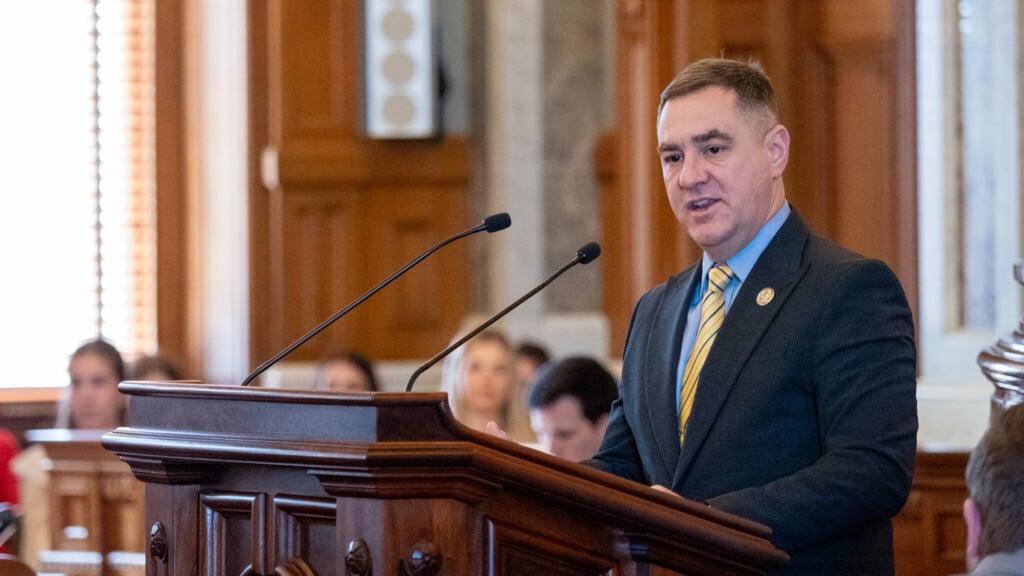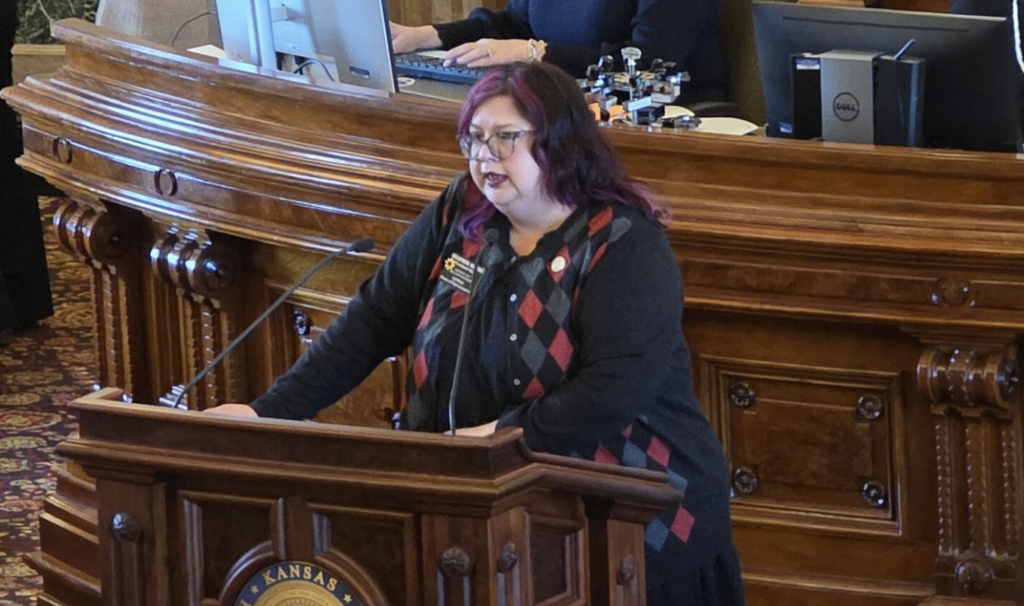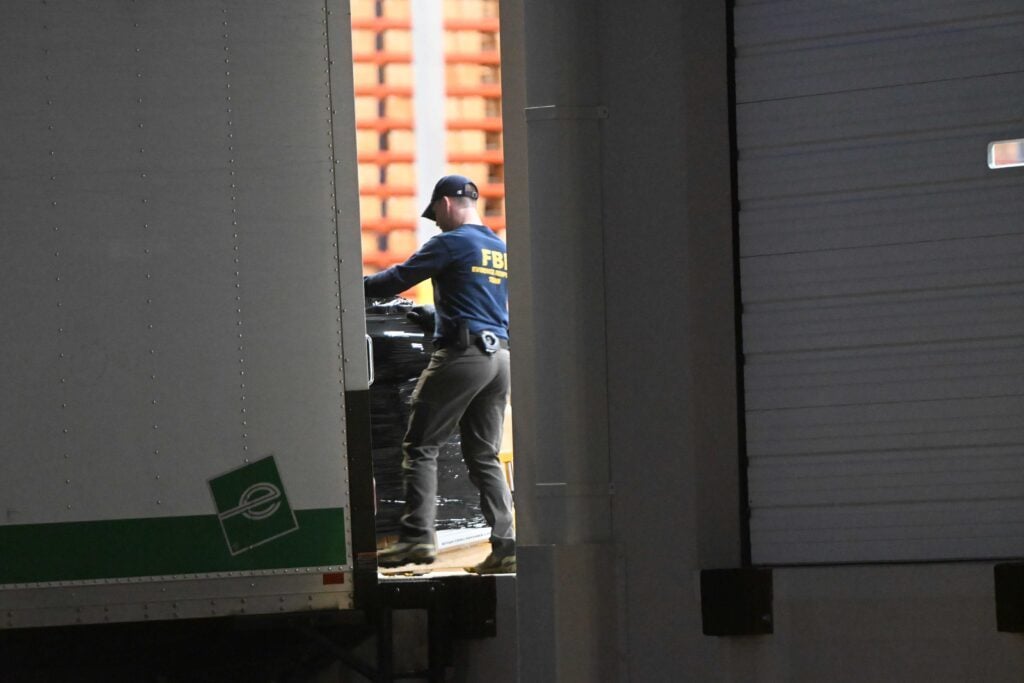As World Cup demands loom, transit leaders face hard decisions to pay for extra bus service
Kansas City has been asking the state and federal government for financial help to pay for extra buses during the World Cup. The clock is ticking, and the transit agency hasn’t gotten a dime.

Kansas City expects about 650,000 visitors next summer over the course of the Kansas City World Cup. KC’s transit agency is concerned that if buses or the streetcar are overwhelmed with tourists, that could impact bus service for the city’s residents. (Vaughn Wheat/The Beacon)
The World Cup is just seven months away, and the Kansas City Area Transportation Authority faces the immense challenge of moving hundreds of thousands of fans around Kansas City next summer.
Now, the transit agency has decided to crack open its piggy bank.
For years, transit leaders have asked Kansas, Missouri and the federal government for financial support during the World Cup to manage massive crowds of fans who will travel to the region without cars.
But they have not received a dime for World Cup bus service. So the KCATA is planning to raid millions of dollars from a federal grant from 2018 intended to buy new buses. Instead, that money will be spent on 40 days of expanded service for fans and tourists.
Chuck Ferguson, the chief operations officer for the KCATA, asked the Mid-America Regional Council to approve the change at a committee meeting on Nov. 10.
“We — Johnson County, the Unified Government — have been pushing local, regional and the feds for some kind of dedicated funding for transit for the last few years to no avail,” Ferguson said. “So now we’re scrambling.”
The federal government created a $625 million grant program for safety and security in World Cup cities. But none of that money can be used by transit agencies.
Ferguson told The Beacon that Missouri also provided some support with an “ambassador” program, which will pay people to be “wayfinders” to help visitors find bus stops at World Cup events. But again, that money can’t be used to pay for additional bus routes or operators.
In the absence of additional support, the KCATA is being asked to manage unprecedented numbers of bus riders in Kansas City with a budget that’s already spread thin. And that exposes funding challenges that the KCATA was already facing before the World Cup was even announced.
Kansas City’s Fan Fest problem
KC2026, the organizing committee formed to raise funds for and manage the World Cup, announced earlier this year that it plans to lease 200 buses to get visitors between the airport, downtown and the six matches planned to be hosted at Arrowhead Stadium.
“KC2026 is currently planning to fund and operate all transportation required to meet the Host City obligations, as well as additional services to facilitate movement in the region,” a spokesperson for KC2026 said in an email statement. “This includes the 200 buses we have leased, as well as any event-specific services that may be provided by partners.”
But transportation leaders are still staring down a problem — getting fans to and from the FIFA Fan Festival on the south lawn of the National World War I Museum and Memorial.
The World War I Museum sits along the newly extended streetcar line, which theoretically could move fans to and from the festival. But anyone who attended the recent Chappell Roan concerts or the NFL Draft in 2023 will remember long wait times to board the streetcar when tens of thousands of people left the venue at the end of the night.

Transportation planners call that a “crush load” — when people are packed shoulder-to-shoulder in the train and a long line of passengers has to wait for the next ride.
“The big worry right now,” Ferguson said at the MARC committee meeting, “is between 25,000 and 35,000 people leaving that venue at one point in time and looking to go somewhere.”
The streetcar, he said, can only handle a fraction of that number — a few thousand per hour.
KC2026 is planning to host the Fan Fest for 18 nights next summer — on the day of every Kansas City or Team USA match. But if the public transit along Main Street is overwhelmed that frequently, transit leaders worry it could be catastrophic for public safety and for the city’s reputation during the World Cup.
So the plan is to repurpose about $2.1 million that the KCATA received in 2018 to purchase new energy efficient buses. Instead, the agency will spend it on operations during the World Cup to run some extra buses along the streetcar line to manage the flood of fans. Another $387,500 would come from the Prospect MAX grant.
That would fund overtime pay for bus operators and the extra fuel.
“It’s not going to be the massive amounts of service that people had originally envisioned,” Ferguson told the committee. “But it is one dedicated opportunity that we hope to put out there.”
Johnson County Transit made a similar request at the Nov. 10 meeting, except it would use $2.1 million to bolster bus lines to hotels like the Sheraton in Overland Park.
In both cases, if the extra buses are not needed, the money will not be spent and it will be returned to the fund, likely to pay for the new efficient buses as originally intended.
KCATA is expected to do more with the same budget
Ultimately, the MARC transportation and emissions committee voted to recommend the change for approval by the entire board later this year.
But there were some dissenters, including Eric Rogers, the executive director and cofounder of BikeWalkKC. Rogers was one of three “no” votes.
He voted that way because he’s concerned about sacrificing long-term transit investments — like buses that could last for 25 years — for the sake of solving a short-term problem at the World Cup.
But he remains frustrated that the KCATA is expected to provide transit service for an unprecedented event in Kansas City without any funding from FIFA or from state or federal partners.
“We are putting our transit agencies in a tough position,” he said. “My question is, ‘Why isn’t the event that’s creating all of this demand doing more to provide the funding that’s needed for the transit agency to respond to the demand?’”
That concern was echoed by several other members of the committee during the meeting, including some who voted yes.
Bailey Waters, the chief mobility officer at Kansas City, asked Ferguson if FIFA was providing any support for the planned World Cup events.
“FIFA is not, never was going to sponsor anything,” Ferguson said in response. “FIFA requires things. But really all that FIFA provides is the happiness that we get to host the World Cup.”
Kansas City Councilmember Eric Bunch, who also serves on the KCATA Board of Commissioners, supports the move to repurpose the green bus funds for World Cup operations. But he said the frustration with FIFA is not lost on him.
“That is the problem with major events like the World Cup, like the Olympics, like the DNC or the RNC,” he said. “They’re pitching this as a positive economic impact. And in the end, it’s the local governments that pick up the bill often, and it’s the local residents who are impacted by it.”
A fundamental funding challenge
Bunch said this most recent situation is emblematic of ongoing funding issues at the KCATA.
Not only is the transit agency underfunded in the Kansas City area, but its biggest financial constraints are around operating costs, rather than buying new buses.
In other words, the KCATA does not tend to have problems paying for new buses. The issue is finding money to pay the drivers and mechanics or buying fuel.
That’s because the federal government is willing to give grants for “capital” like new buses or streetcar tracks, but it is much rarer for the KCATA to get grants that can be used for “operations.”
(The Trump administration has deprioritized public transit as a whole compared to the Biden administration.)
“The federal government basically says, ‘All right, we’ll help you build your transit system, we’ll buy buses, we’ll build tracks for streetcars and light rail,’” Bunch said. “But once it’s up and running, that’s (the city’s) responsibility.”
About 72% of the KCATA’s operations — $61 million out of total $85 million — are paid for by Kansas City Hall.
So if the KCATA can find a way to use the federal grants to pay bus operators during the World Cup, Bunch said, that’s a far more appealing option than tapping an already strained operations budget.
Tristin Amezcua-Hogan, the chair of the Regional Transit Alliance, told The Beacon in an email statement that the KCATA is “trapped in a cycle of poverty right now that is perpetuated by a lack of stable regional funding.”
“This is just one of the many instances of the organization having to choose what gets the job done over the optimal decision that would come out of consistent funding,” he said.
Some members of the MARC committee, including Westwood City Administrator Leslie Herring, believe that the positive side of the World Cup is that some Kansas Citians are going to be taking public transit for the first time to get to the Fan Fest.
“It might be an opportunity to expand who all in Kansas City actually feels comfortable riding the buses,” Herring said at the committee meeting. “When Mission would take residents down to the Plaza, in Westport, to go bar hop during the holiday season, that was one of my first times on a bus. And I feel very comfortable on KCATA buses now.”
In theory, that kind of public support from new bus riders could pay off in the future if a regional transit sales tax is placed on the ballot.
A sales tax has some support in the Jackson County Courthouse, and four out of five of the Unified Government commissioners elected earlier this month told The Beacon that they would support putting a similar measure on the ballot in Wyandotte County.
Bunch said polling shows the majority of voters in Jackson, Johnson, Clay and Wyandotte counties already support raising taxes to fund public transit. And that could increase if the KCATA does a good job during the World Cup.
“That is the opportunity we have with the World Cup, and enhancing bus service during that time,” he said. “That more people are going to be willing to try it out. And I think that that’s a really good thing.”
This article first appeared on Beacon: Kansas City and is republished here under a Creative Commons Attribution-NoDerivatives 4.0 International License.![]()




